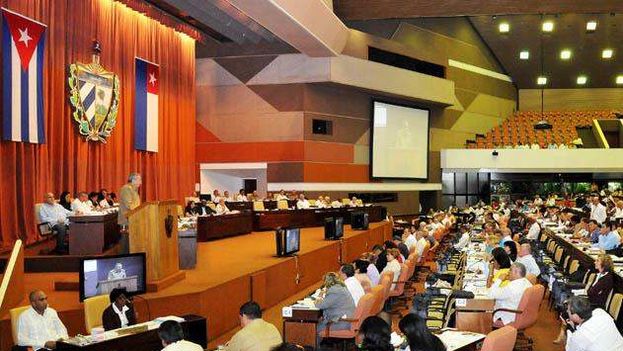
![]() 14ymedio, Reinaldo Escobar, Havana, 30 December 2015 — Among the surprises brought by the last session of the National Assembly of People’s Power, one could mention the announcement by the Minister of Finance and Prices, Lina Pedraza, that as of 2016 there would be an exemption from taxes on the profits of Basic Production Cooperative Units (UBPC) – other than those involved in sugar production – as well as on Credit and Service Cooperatives (CCS), as long as more than half their revenues come from agricultural production. The announcement has been well received, although there are many who believe that such a measure should have been implemented long ago and not as a temporary solution.
14ymedio, Reinaldo Escobar, Havana, 30 December 2015 — Among the surprises brought by the last session of the National Assembly of People’s Power, one could mention the announcement by the Minister of Finance and Prices, Lina Pedraza, that as of 2016 there would be an exemption from taxes on the profits of Basic Production Cooperative Units (UBPC) – other than those involved in sugar production – as well as on Credit and Service Cooperatives (CCS), as long as more than half their revenues come from agricultural production. The announcement has been well received, although there are many who believe that such a measure should have been implemented long ago and not as a temporary solution.
The more surprising surprise – forgiving the redundancy – was the inclusion of owners and lessees of land in the non-sugar sector, who in this case will be freed from annual taxes on personal income. To free those who plant and harvest from all the accounting implied in these statements, and to accept that the more they produce the more they will earn, could be beneficial not only for those with their feet and hands in the earth, but could reduce, over the long term, the prices of agricultural products, a ubiquitous demand from all voters to their delegates in the local “Assemblies of Accountability”
Finally, it was also announced that no taxes will be paid on the use of workforce personnel directly contracted for production. This could benefit both cooperatives, lessees and owners, as at peak times during cultivation and harvest the use of casual labor is essential. The exodus from agricultural areas – especially of young people – is due, among other reasons, to the bureaucratic limitations that don’t allow free movement of the workforce and which give rise to the phenomenon of “ghost agreements,” where day laborers lack all rights and protection.
For a long time, even from positions held by the opposition, there have been demands that those who produce food for the population should be freed from tax burdens, which could help boost production and ensure supply. If implemented as announced, agricultural food producers would be freed from the fear that making money would lead to the imposition of taxes that can suck the blood out of those who declare the highest profits.
The measure could be evaluated as a pragmatic step, but also as an ideological concession to the obsession that farmers not get rich, a typical ramification from the times of classic Fidelism.
